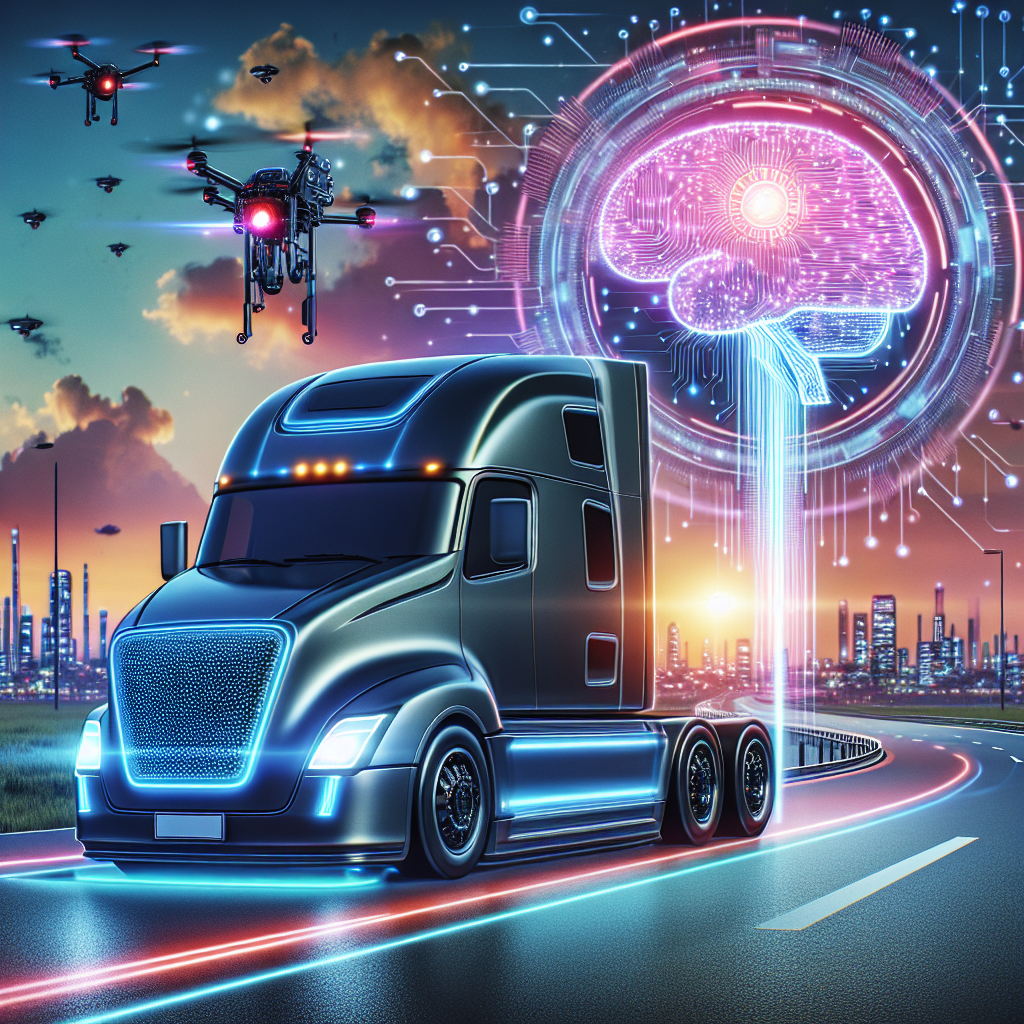The Future of Autonomous Trucks: How AI is Driving Innovation
Autonomous trucks are revolutionizing the transportation industry, with the potential to drastically change the way goods are transported across the country. These self-driving vehicles are equipped with advanced artificial intelligence (AI) technology that allows them to navigate roads, make decisions, and deliver goods without human intervention. With the rise of autonomous trucks, many are wondering what the future holds for this groundbreaking technology and how it will continue to drive innovation in the industry.
AI is at the heart of autonomous trucks, enabling them to perceive their environment, make decisions, and navigate safely on the road. These vehicles are equipped with a range of sensors, cameras, and radars that allow them to detect obstacles, other vehicles, and pedestrians in their path. AI algorithms process this data in real-time, allowing the trucks to make split-second decisions and adjust their course accordingly.
One of the key benefits of autonomous trucks is their potential to improve safety on the roads. Human error is a leading cause of accidents in the transportation industry, but autonomous trucks have the potential to reduce the number of accidents by eliminating human error from the equation. These vehicles are programmed to follow traffic laws, maintain a safe distance from other vehicles, and react quickly to changing road conditions, making them safer than traditional trucks driven by humans.
In addition to safety improvements, autonomous trucks also have the potential to increase efficiency and reduce costs for companies in the transportation industry. These vehicles can operate around the clock, without the need for breaks or rest periods, allowing companies to deliver goods faster and more efficiently. Autonomous trucks can also optimize their routes and driving patterns to minimize fuel consumption and reduce overall operating costs.
The future of autonomous trucks is bright, with many companies investing in research and development to bring this technology to market. Companies like Tesla, Waymo, and Uber are leading the way in developing autonomous truck technology, with plans to deploy these vehicles on the roads in the near future. As the technology continues to advance, we can expect to see more autonomous trucks on the roads, delivering goods faster and more efficiently than ever before.
FAQs
Q: How do autonomous trucks navigate the roads?
A: Autonomous trucks are equipped with a range of sensors, cameras, and radars that allow them to detect obstacles, other vehicles, and pedestrians in their path. AI algorithms process this data in real-time, allowing the trucks to make split-second decisions and adjust their course accordingly.
Q: Are autonomous trucks safe?
A: Autonomous trucks have the potential to improve safety on the roads by eliminating human error from the equation. These vehicles are programmed to follow traffic laws, maintain a safe distance from other vehicles, and react quickly to changing road conditions, making them safer than traditional trucks driven by humans.
Q: How will autonomous trucks impact the transportation industry?
A: Autonomous trucks have the potential to increase efficiency and reduce costs for companies in the transportation industry. These vehicles can operate around the clock, without the need for breaks or rest periods, allowing companies to deliver goods faster and more efficiently. Autonomous trucks can also optimize their routes and driving patterns to minimize fuel consumption and reduce overall operating costs.
Q: When will autonomous trucks be available on the roads?
A: Companies like Tesla, Waymo, and Uber are leading the way in developing autonomous truck technology, with plans to deploy these vehicles on the roads in the near future. As the technology continues to advance, we can expect to see more autonomous trucks on the roads in the coming years.

